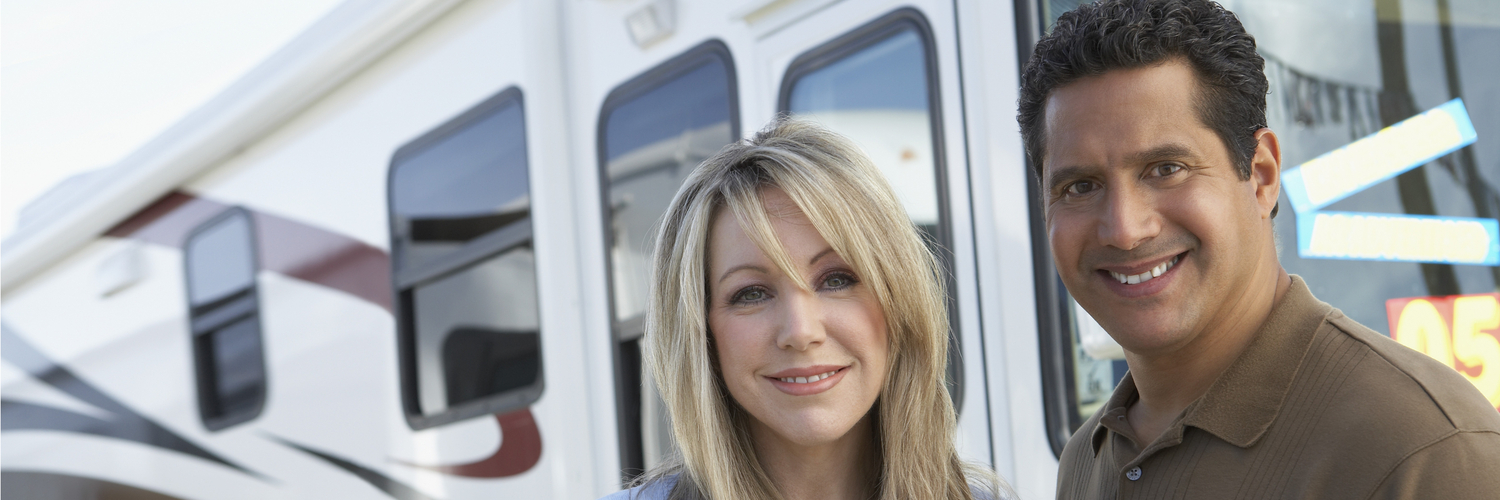RV Insurance from Massachusetts Specialists
Proudly Providing RV Insurance to Residents in Massachusetts & 25 Other States Across the Nation
Recreational vehicles let people explore the open road, offering both a means of transportation and a place to stay. Because these vehicles merge features of homes with those of vehicles, they come with slightly different needs than what cars and trucks have. RV insurance gives Massachusetts residents who have RVs the unique blend of insurance protections that they need.
What is RV Insurance?
RV insurance is like auto insurance, except it’s specifically designed for covering motorhomes, recreational vehicles, and some campers. There are several classes of RV policies, each of which covers different kinds of RVs:
- Class A policies provide coverage for vehicles up to 75 feet long, and are often used to insure converted buses and large RVs
- Class B policies provide coverage for small RVs, camper vans, and travel trailers
- Class C policies provide coverage for fifth-wheel vehicles and van-based RVs that have a camper portion extended over the cab.
What Coverages Does Recreational Vehicle Insurance Provide?
In general, recreational vehicle insurance policies offer many of the coverage options that are found in traditional auto policies (you can find a list of more-specific potential coverages below).
Free Quotes!

Coverages that are either required by Massachusetts state law or available as optional coverages include:
- Personal Injury Protection, which may cover injuries sustained by a driver or their passengers
- Bodily Injury Coverage, which might cover injuries sustained by other people
- Comprehensive Coverage, which may protect a vehicle from damage sustained in non-collision incidents
- Collision Coverage, which might protect a vehicle from damage sustained in collisions
- Property Damage Liability Coverage, which may cover damage to others’ property that a driver is responsible for
- Underinsured and Uninsured Motorist Coverage, which might cover accidents involving drivers who don’t have adequate auto insurance
- Emergency Roadside Assistance, which may provide help if a vehicle breaks down on the side of the road
In addition to these coverages, recreational vehicle policies can also include several coverages that are more specific to recreational vehicles. Some other coverages that RV owners may want are:
- Campsite and Vacation Coverage, which typically extends protections to trips taken in an RV
- Emergency Expenses Coverage, which may help pay for lodging, transportation, and other unanticipated costs if an RV is damaged or destroyed in a covered incident
- Full-Timer Coverage, which residents who live full-time in their RV often need
Do RV Policies Include Coverage for Personal Belongings?
Most RV policies offer coverage for personal belongings as an optional protection, because not everyone needs this coverage.
Some recreational vehicle owners already have coverage for their personal belongings — even while those belongings are in their RV — through their homeowners policy. Homeowners policies that include “worldwide coverage” for personal property, for instance, usually cover belongings regardless of where they are.

If personal property coverage is already provided by a homeowners policy, it’s usually not necessary to purchase duplicate coverage through an RV policy. Of course, when coverage isn’t provided by a homeowners policy, it’s wise to get coverage for personal belongings through an RV policy.
RV owners who are unsure if they need coverage for personal belongings should ask their insurance agent to review their homeowners policy. Their agent will be able to explain their current coverages and help them select the appropriate ones in an RV policy.
How Much Does Recreational Vehicle Insurance Cost?
Just as auto insurance premiums vary a lot, recreational vehicle insurance costs also vary. How much a particular RV policy costs depends on many factors, including:
- The policy’s class (i.e. Class A, Class B or Class C)
- How frequently the RV is used
- The policyholder’s driving record
- The coverages and limits selected
- Where the RV is stored when not in use
In general, Class A policies are the most expensive because they’re used to insure the largest RVs. Class B policies are usually the least expensive.
How Can Recreational Vehicle Owners in Massachusetts Get RV Insurance?
Massachusetts residents who own or will soon purchase a recreational vehicle can get quotes for RV insurance by contacting an independent insurance agent near them. Most agents who help drivers with auto insurance can also help RV owners with RV policies. There are qualified independent agents serving residents across the nation who can guide you through the process.

The Feingold Companies
Worcester Office
446 Main Street, Suite 1403
Worcester, MA 01608
Phone: (508) 831-9500
Fax: (508) 797-4030
New Lakeside & Dudley Insurance
446 Main Street, Suite 1403,
Worcester, MA 01608
Phone: (508) 943-0090
Send us a message

